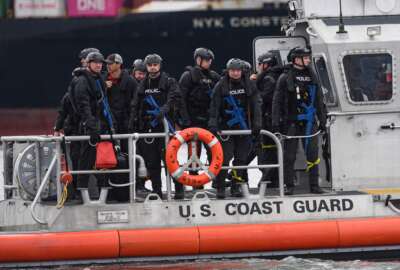2013 AFCEA International Cyber Symposium
Cyber threats and challenges grow every day. Successfully defending our networks requires a team approach. With this in mind, the 2013 Cyber Symposium will enga...
Cyber threats and challenges grow every day. Successfully defending our networks requires a team approach. With this in mind, the 2013 Cyber Symposium will engage the key players, including the U.S. government, the international community, industry and academia, to discuss the development of robust cyberspace capabilities and partnerships.

Executive Vice President
AFCEA International
It’s no longer a secret: nations spy on one another in cyberspace. Meanwhile, cyber crime is growing. The federal government is trying to find its way in this swarm of cyberthreats. Retired Army Lt. Gen. John Dubia is in the thick of the effort. He is executive vice president of the Armed Forces Communications and Electronics Association.
If the defense and intelligence establishments run on software, somebody has to develop that software. But software development in the federal government is changing radically — more commercial, more fixed price, more use of open standards and more agile. Edward Grimes, president of the Maryland company SW Complete and president of the Central Maryland Chapter of AFCEA, has long experience in federal software development.

Vice President, Homeland Security Programs
AFCEA International
Cybersecurity is about bits and bytes, and keeping the bad ones off your network. But it’s also about people, those you can trust and have the skills needed to protect your agency’s online assets. Vince Patton, vice president for Homeland Security Programs at AFCEA International, has worked the cyber question from both the government and industry sides.

Adjunct Faculty Member, Computer Science Department
George Washington University
Government cybersecurity professionals have a third element they need to think about after technology and people. It’s the legal aspect. Christina Ayiotis, who teaches information policy in the master’s program at George Washington University’s Computer Science Department, is trying to fill that gap.
The Federal Drive with Tom Temin and Emily Kopp was onsite at the AFCEA International Cyber Symposium today broadcasting live from the event. Listen below to our interviews with those organizing and participating in the conference.

Executive Vice President
AFCEA International
It’s no longer a secret: nations spy on one another in cyberspace. Meanwhile, cyber crime is growing. The federal government is trying to find its way in this swarm of cyberthreats. Retired Army Lt. Gen. John Dubia is in the thick of the effort. He is executive vice president of the Armed Forces Communications and Electronics Association.
president
SW Complete
If the defense and intelligence establishments run on software, somebody has to develop that software. But software development in the federal government is changing radically — more commercial, more fixed price, more use of open standards and more agile. Edward Grimes, president of the Maryland company SW Complete and president of the Central Maryland Chapter of AFCEA, has long experience in federal software development.

Vice President, Homeland Security Programs
AFCEA International
Cybersecurity is about bits and bytes, and keeping the bad ones off your network. But it’s also about people, those you can trust and have the skills needed to protect your agency’s online assets. Vince Patton, vice president for Homeland Security Programs at AFCEA International, has worked the cyber question from both the government and industry sides.

Adjunct Faculty Member, Computer Science Department
George Washington University
Government cybersecurity professionals have a third element they need to think about after technology and people. It’s the legal aspect. Christina Ayiotis, who teaches information policy in the master’s program at George Washington University’s Computer Science Department, is trying to fill that gap.

Copyright © 2024 Federal News Network. All rights reserved. This website is not intended for users located within the European Economic Area.





